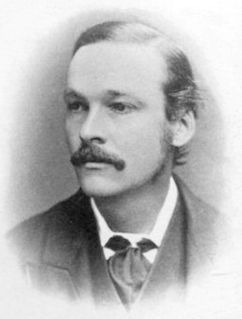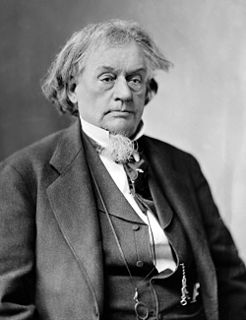A Quote by Thomas B. Macaulay
Logicians may reason about abstractions. But the great mass of men must have images. The strong tendency of the multitude in all ages and nations to idolatry can be explained on no other principle.
Related Quotes
It is never to be expected in a revolution that every man is to change his opinion at the same moment. There never yet was any truth or any principle so irresistibly obvious that all men believed it at once. Time and reason must cooperate with each other to the final establishment of any principle; and therefore those who may happen to be first convinced have not a right to persecute others, on whom conviction operates more slowly. The moral principle of revolutions is to instruct, not to destroy.
Offerings to propitiate the dead then were regarded as belonging to the class of funeral sacrifices, and these are idolatry. Idolatry, in fact, is a sort of homage to the departed, the one as well as the other is a service to dead men. Moreover, demons dwell in the images of the dead. ... this sort of exhibition has passed from honors of the dead to honors of the living; I mean, to quaestorships [financial overseers]and magistractes, to priestly offices of different kinds. Yet, since idolatry still cleaves to the dignity's name, whatever is done in its name partakes of its impurity.
The other part of the true religion is our duty to man. We must love our neighbour as our selves, we must be charitable to all men for charity is the greatest of graces, greater then even faith or hope & covers a multitude of sins. We must be righteous & do to all men as we would they should do to us.
Enoch predicted that "the demons and the spirits of the angelic apostates would turn into idolatry all the elements, all the adornment of the universe, and all things contained in the heaven, the sea, and the earth, that they might be consecrated as God in opposition to God." All things, therefore, does human error worship, except the Founder of all himself. The images of those things are idols; the consecration of the images is idolatry.
For ages, a deadly conflict has been waged between a few brave men and women of thought and genius upon the one side, and the great ignorant religious mass on the other. This is the war between Science and Faith. The few have appealed to reason, to honor, to law, to freedom, to the known, and to happiness here in this world. The many have appealed to prejudice, to fear, to miracle, to slavery, to the unknown, and to misery hereafter. The few have said "Think" The many have said "Believe!"
The tendency has always been strong to believe that whatever received a name must be an entity or being, having an independent existence of its own. And if no real entity answering to the name could be found, men did not for that reason suppose that none existed, but imagined that it was something peculiarly abstruse and mysterious.
Even in an advanced stage of civilization, there is always a tendency to prefer those parts of literature which favor ancient prejudices, rather than those which oppose them; and in cases where this tendency is very strong, the only effect of great learning will be to supply the materials which may corroborate old errors and confirm old superstitions. In our time such instances are not uncommon; and we frequently meet with men whose erudition ministers to their ignorance, and who, the more they read the less they know.

































